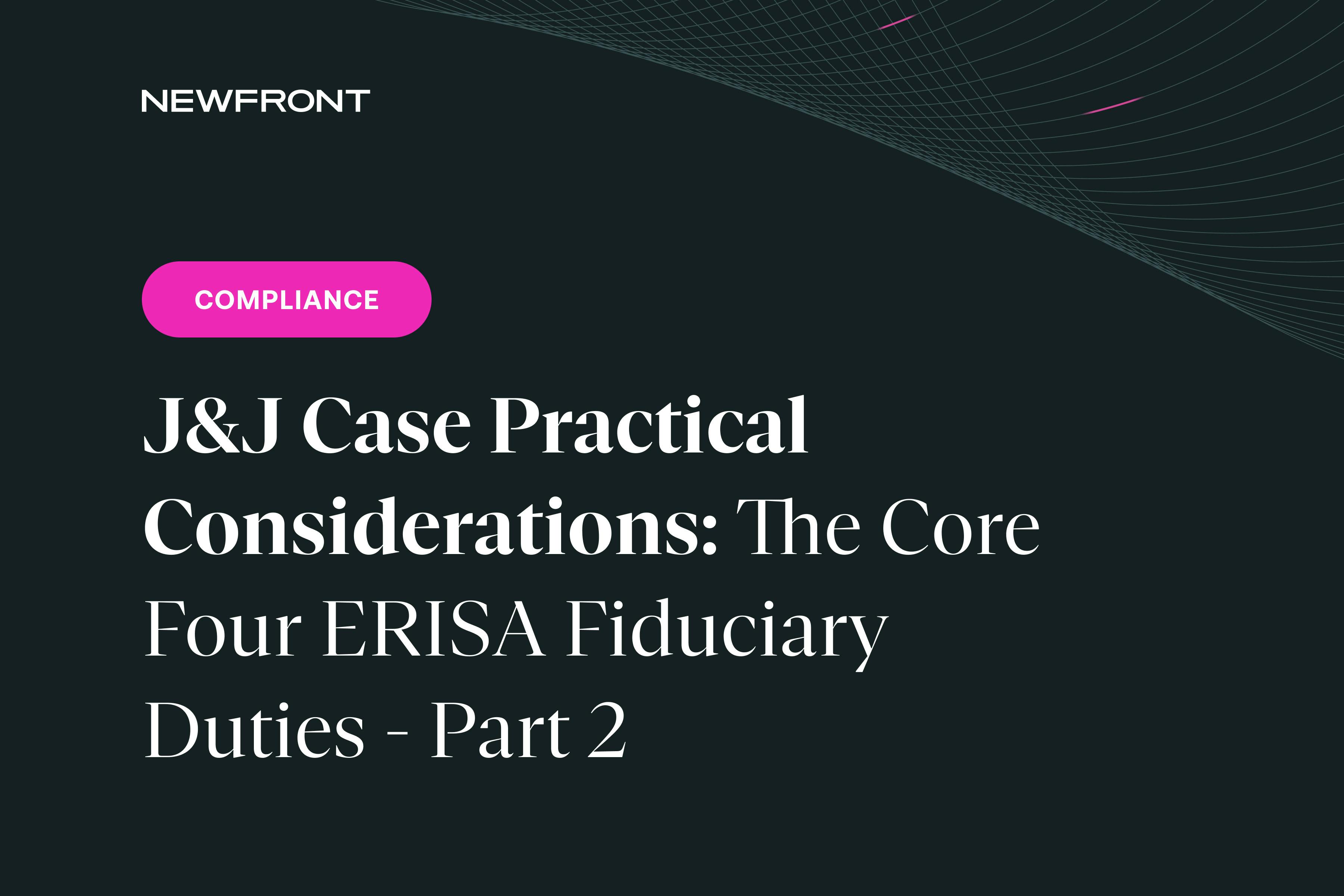Dependent Care Spend Down Provision
By Brian Gilmore | Published March 2, 2018
Question: Can a Section 125 Cafeteria Plan provide participants the right to incur dependent care FSA claims (daycare expenses) after terminating from employment?
Compliance Team Response:
COBRA Rights Apply to the Health FSA (Not the Dependent Care FSA)
Underspent health FSA accounts generally can be continued through COBRA until the end of the plan year in which the employee terminates. COBRA permits an employee to incur reimbursable claims through the end of the plan year in which the employee terminates (i.e., remain “covered” by the health FSA for the remainder of the plan year). See our prior FAST on this topic for full details: https://theabdteam.com/blog/health-fsa-reimbursements-termination-employment/
However, there are no COBRA right for non-health plans. So COBRA applies to the health FSA, but not the dependent care FSA.
To address this issue, dependent care FSA plans are permitted to include a “spend down” provision that permits reimbursement of expenses incurred through the remainder of the plan year.
Dependent Care FSA Can Offer “Spend Down” Provision for Terminated Employees
There is a special rule only for the dependent care FSA (not for the health FSA) that allows the dependent care FSA to reimburse terminated employees from their remaining account balance for expenses incurred through the end of the plan year in which the employee is terminated.
For example, if an employee terminates today and has $1,000 in dependent care FSA balance remaining, the general rule is that he or she would have the run-out period (typically 90 days) to submit expenses incurred before the termination of employment.
The special DCAP spend down provision rule would also permit the terminated employee to incur expenses through the end of the plan year (i.e., to spend-down the balance post-termination).
You have to check each Section 125 cafeteria plan individually to see if they’ve added that optional dependent care FSA spend-down provision. Many plans do not. An employer may amend the plan mid-year to add the spend-down provision, but check first with the TPA because they might not be able to administer the spend-down as a mid-year addition.
Note that the spend-down is generally offered through the end of the plan year in which the employee terminates—not merely 90 days. The 90-day period is usually reserved for the run-out.
Again, the run-out period simply allows the terminated employee to submit claims already incurred prior to terminating from employment. The benefit of the spend down provision is the employee can continue incurring claims through the end of the plan year.
Regulations:
Prop. Treas. Reg. §1.125-6(a)(4)(v):
(v) Optional spend-down provision. At the employer’s option, the written cafeteria plan may provide that dependent care expenses incurred after the date an employee ceases participation in the cafeteria plan (for example, after termination) and through the last day of that plan year (or grace period immediately after that plan year) may be reimbursed from unused benefits, if all of the requirements of section 129 are satisfied.
(vi) Example. The following example illustrates the rules in paragraph (a)(4)(v) of this section:
_Example. _Terminated employee’s post-termination dependent care expenses.
(i) For calendar year 2009, Employee X elects $5,000 salary reduction for dependent care assistance through Employer G’s cafeteria plan. X works for Employer G from January 1 through June 30, 2009, when X terminates employment. As of June 30, 2009, X had paid $2,500 in salary reduction and had incurred and was reimbursed for $2,000 of dependent care expenses.
(ii) X does not work again until October 1, 2009, when X begins work for Employer H. X was employed by Employer H from October 1, 2009 through December 31, 2009. During this period, X also incurred $500 of dependent care expenses. During all the periods of employment in 2009, X satisfied all requirements in section 129 for excluding payments for dependent care assistance from gross income.
(iii) Employer G’s cafeteria plan allows terminated employees to “spend down” unused salary reduction amounts for dependent care assistance, if all requirements of section 129 are satisfied. After X’s claim for $500 of dependent care expenses is substantiated, Employer G’s cafeteria plan reimburses X for $500 (the remaining balance) of dependent care expenses incurred during X’s employment for Employer H between October 1, 2009 and December 31, 2009. Employer G’s cafeteria plan and operation are consistent with section 125.

Brian Gilmore
Lead Benefits Counsel, VP, Newfront
Brian Gilmore is the Lead Benefits Counsel at Newfront. He assists clients on a wide variety of employee benefits compliance issues. The primary areas of his practice include ERISA, ACA, COBRA, HIPAA, Section 125 Cafeteria Plans, and 401(k) plans. Brian also presents regularly at trade events and in webinars on current hot topics in employee benefits law.
Connect on LinkedIn

